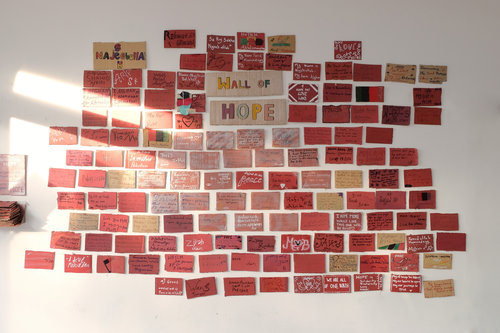- About
- Topics
- Picks
- Audio
- Story
- In-Depth
- Opinion
- News
- Donate
-
Signup for our newsletterOur Editors' Best Picks.Send
Read, Debate: Engage.
| February 16, 2023 | |
|---|---|
| topic: | Refugees and Asylum |
| tags: | #Poland, #Belarus, #refugees, #asylum seekers, #racism |
| located: | Poland, Belarus |
| by: | Aidan Frere-Smith |
Editor’s note: this article contains graphic descriptions of violence that may be triggering for some readers.
In June 2021, Belarusian president Aleksandr Lukashenko announced he would not be stopping refugees and migrants from heading to the European Union (EU). This came after sanctions were imposed by the EU following the leader's response to large demonstrations against his contentious election victory the year prior.
Many in Belarus believed the election result to be fraudulent and took to the streets to protest and demand that he step down but were violently dispersed, with thousands arrested, hundreds tortured and at least three killed, according to Human Rights Watch.
In addition, journalism in the country has since been heavily repressed, which solidified Lukashenko’s reputation of being ‘Europe’s last dictator’.
Lukashenko’s refugee announcement effectively created a new route into the EU for people fleeing from the Middle East; they were further encouraged by easy-to-access visa and tourist packages.
Within months, the situation on the Polish-Belarus border intensified. With a growing number of attempted crossings, the Polish military were mobilised to secure the border and estimated that more than 10,000 people were hoping to enter the country.
In September, a state of emergency was implemented and, as tensions escalated, Polish forces deployed water cannons and tear gas against large numbers of people who are believed to have been forced to the border at gunpoint by Belarusian authorities.
This Video footage showing refugees violently forced into razor wire, screaming and crying, is testament to the severe manner in which they were treated.
In January 2022, the construction of a 18ft tall, 186km long border wall began. The project, which cost €353 million, involved the installation of motion sensors and a monitoring system along the border wall, and was finally completed in June of last year.
Now, with continued 'brutal violence' inflicted by Belarusian forces and unable to turn back, refugees have no choice but to continue to attempt to enter the EU and overcome the Polish border. But they are not alone.
Wanda (name altered for anonymity purposes), a refugee solidarity activist operating in Poland as part of the No Border Network, has been active since the crisis began in the summer of 2021. She had first heard of refugees crossing the border of Belarus into Poland through her friends in Anarchist networks and immediately took action to help them.
Though she had little expectations, Wanda had hoped that people entering the country would at least have the opportunity to apply for asylum. She soon realised that was not the case.
"We found some people who were caught by border guards," Wanda told FairPlanet.
"I got their names and paperwork and told them I would be responsible for helping them apply for asylum. When I called the authorities the next day, they initially denied any knowledge of these people. But once I started asking about specific people and using their names, they then stated they had pushed them back to Belarus."
Push-backs, where refugees are often violently forced back across a border from where they had entered the country, are considered violations of international and EU law. Yet, they continued and were eventually sanctioned by the Polish government through legal amendments.
It was reported that between August 2021 and December 2022, there were over 50,000 incidents of refugees being 'returned,' although the number is likely higher, as not all push-backs are officially documented. Wanda stated that forced returns take place "even when it is -10 degrees Celsius."
It was during those early experiences that Wanda had what she described as her biggest trauma. "They were barely alive," she recalled.
"Exhaustion and a lack of food, water and warmth made them catatonic. We tried to help them but the border guards started dragging them away to their vehicle. [The refugees] were grabbing my legs, holding onto me and begging me to not let [the border guards] take them away."
After silent retrospection, she continued: "It is something I will always remember. No one was prepared for this."
Crossing the border unharmed and undetected is near impossible. Many sustain broken bones as a result of falling and sustain deep lacerations from the barb wire. Wanda stated that when refugees are caught by Polish border guards, medical aid is never provided, and that the latter even rejoices in their suffering on some occasions.
"We discovered a video [of border guards] laughing at a person who was stuck upside down and caught in the barbed wire. They didn’t help but just stared and laughed after he fell," she said.
Furthermore, existing injuries are often exacerbated by climbing over the border wall. "Many [refugees] get badly beaten up by Belarusian soldiers and have dogs set on them," Wanda shared. Tunnelling underneath is the only way to avoid additional injury, though is time-consuming and comes with a greater risk of being apprehended.
Not everyone is able-bodied enough to overcome the border-wall. "What happens to families, the elderly and young people?" Wanda asked. "We’ve had reports [from refugees] that many people who are stuck on the Belarus side are dying there. Some have medical histories and need medicine which they cannot get."
As journalists and humanitarian organisations are unable to access the area, the exact number of refugees stuck on the Belarusian side of the border remains largely unknown.
As part of the state of emergency, a strict exclusion zone was imposed, prohibiting NGO’s, aid-workers, activists and journalists from entering. "A lot of people started getting really scared because of what was going on," Wanda explained.
Arrests, violence and having items and equipment confiscated and smashed are all situations which activists have experienced when caught attempting to assist refugees in the exclusion zone.
For many activists it is difficult to continue their work after having been confronted with such traumatic situations. But Wanda said she feels she has no choice but to persevere - a sentiment other activists share as well, according to her. "I kept feeling sick when I would go back because I was so stressed about it," she admitted, "but I knew we could help."
Through careful networking, refugees can communicate with activists through a dedicated contact number. Those who have crossed the border can be located and provided with emergency medical attention, psychological support and supplied with items such as warm clothing, food and water, powerpacks and more.
In addition to responding to call-outs, activists also search large areas of the forest. "It is necessary, because we do find people," Wanda said. "We look for hours and work out where crossings might have been in an area and judge this by the number of items we find left behind."
Evidence of refugees passing and residing in the forest comes in many forms. Odd empty water bottles, pieces of packaging and empty food containers are most common; but backpacks, sleeping bags and other bedding material, as well as various clothing and footwear, are also often found. Most of these are abandoned after becoming spoiled due to exposure to the elements and the harsh conditions of the forest.
Forced to travel light to overcome the border wall, refugees struggle with what small rations they have. Seemingly unspoiled items that are discovered suggest that whoever they belonged to were caught by the authorities and pushed-back to Belarus.
But there is another discovery that alarms activists and confirms the mistreatment of refugees who are detained by the Polish authorities. "We started finding broken phones," said Wanda. She explained that this is done deliberately, as without them refugees cannot contact emergency groups or communicate with friends and families and have no way to navigate the forest.
Areas where refugees are camping are also discovered. Similar to other items found by activists, the condition of tents, covers and other sleeping materials vary and give a glimpse into who is on the move.
On occasion, evidence of the presence of children and infants is found. "We have had situations where people have given birth whilst stuck in the forest," Wanda said, "which has led us to take training on how to deliver a baby."
Areas that show consistent evidence of refugees residing or passing through are revisited in hopes that activists can find refugees and provide assistance and support. But in such a hostile environment, it is natural for refugees to be apprehensive of any interaction.
"Sometimes they are really scared," she added. "In the past, ambulance workers have informed border guards and [because of this] have had seriously injured people begging us not to call an ambulance."
The harsh reality for activists, however, is that if they can find refugees, so can the Polish authorities. Discovering a recently evicted camp is a sobering reminder of that.
Following the Russian invasion of Ukraine in February 2022, Poland played a vital role for millions of Ukrainians fleeing the country. Though Poland made legal reforms to rightfully support Ukrainian citizens entering, non-white residents, including those of African and Indian descent, were prevented from crossing the border. For Wanda, this ill treatment at the border was not a surprise - and shows how racism taints humanitarian efforts.
"When we were trying to look for housing for refugees who travelled through Belarus, who were people of colour, it was almost impossible to find houses for them," she reflected. "Some people simply feel different about refugees who are white."
But although this form of discrimination is clearly a problem, Wanda reassures that there still has been support for refugees, regardless of their background or ethnicity. The scale of people entering Poland, however, has undeniably over-stretched humanitarian efforts and saw numbers of activists and humanitarian assistance thinning on the ground. Despite this, activists continue to do what they can.
Since this crisis began, 33 refugees reportedly died at the Poland-Belarus border, and over 180 have been reported missing; the true numbers, however, are likely much higher, as not all who go missing get reported.
Wanda believes that the Belarusian president has used refugees as geo-political pawns in a game which Poland and the EU have been forced to play. The result is a tragic and appalling treatment of human life.
As she views it, the violence that exists at this border is inherent and cannot be resolved with reforms. This is why she, as well as many other activists, call for no borders.
Image by Aidan Frere-Smith.
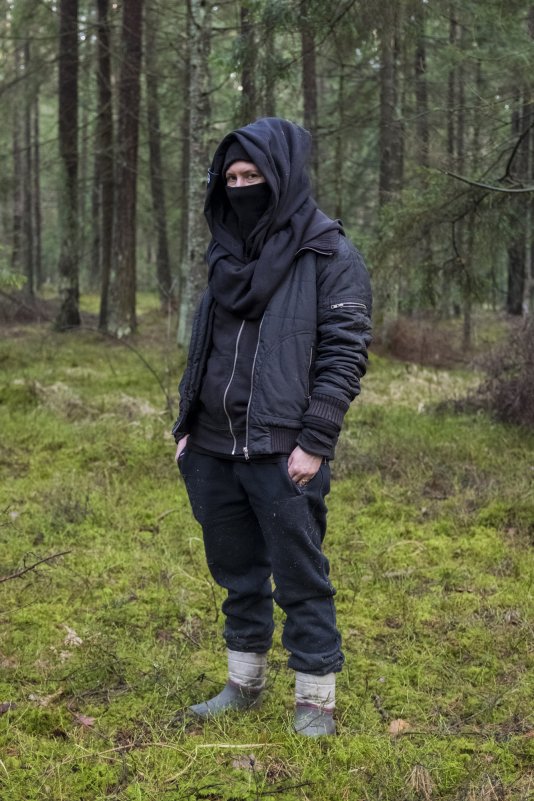
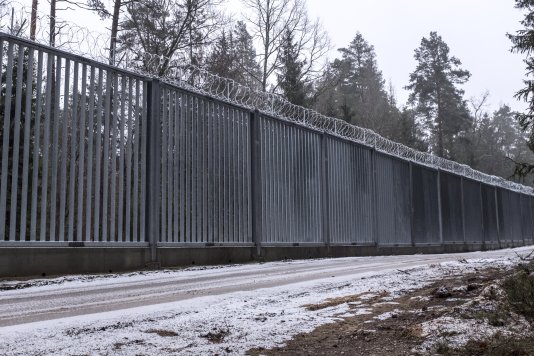
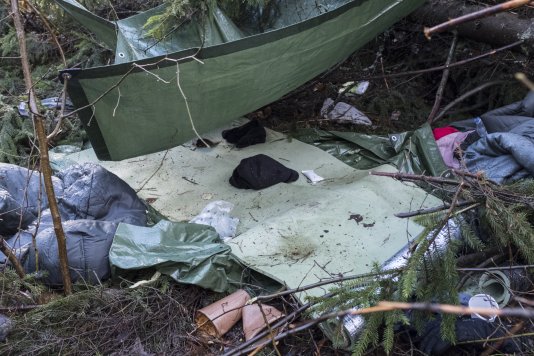
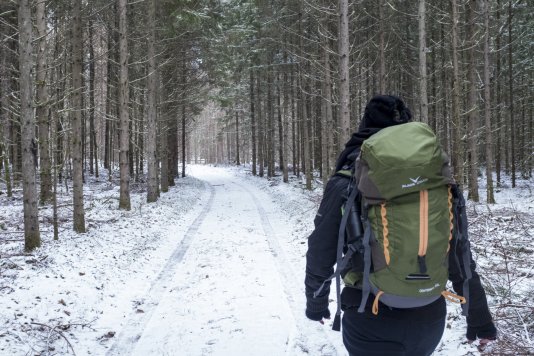
By copying the embed code below, you agree to adhere to our republishing guidelines.

